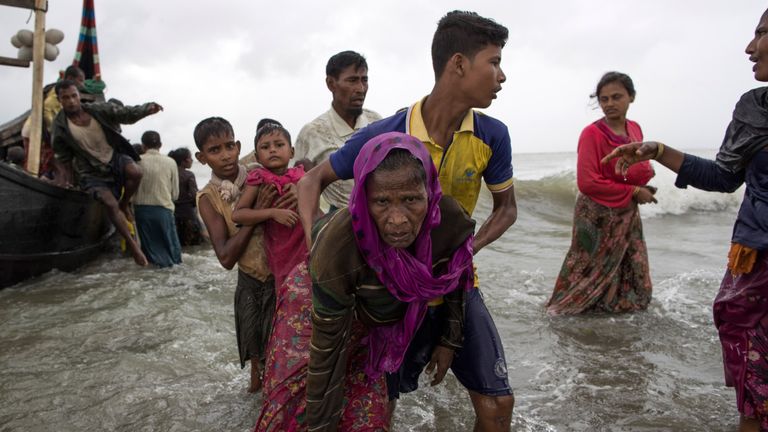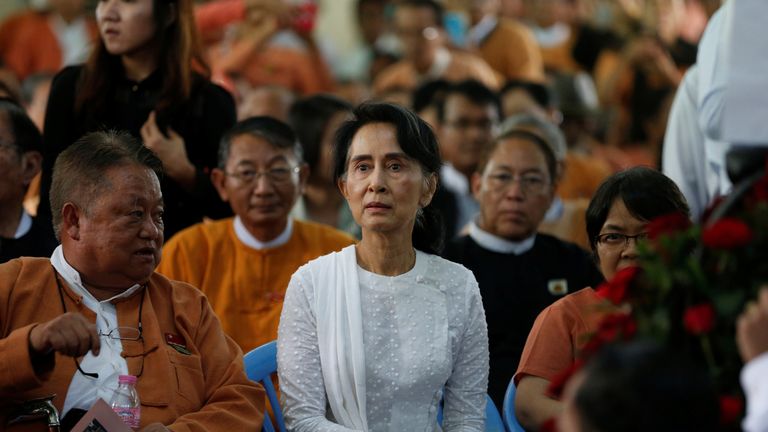Myanmar could take back Rohingyas who fled to Bangladesh after violence
Nearly 600,000 have gone to Bangladesh since violence erupted in October 2016, including 500,000 in the last five weeks.
Tuesday 3 October 2017 15:12, UK
Myanmar is said to be ready to take back Rohingya refugees - but only those who fled the country in the past year.
Nearly 600,000 from the Muslim minority have gone to neighbouring Bangladesh since violence erupted in Rakhine state in October 2016, including 500,000 after an upsurge in the last five weeks.
They said they escaped the Buddhist-majority country after their villages were burned to the ground by soldiers.
The refugees are now packed into overcrowded camps along the border with Bangladesh and there is an increasing risk of disease.
But there are another 300,000 Rohingyas in Bangladesh who left Rakhine following previous violence, including tens of thousands in the 1990s.
Myanmar's minister of the office of state counsellor, Kyaw Tint Swe, made the offer to take back Rohingyas during a meeting in Dhaka with Bangladesh's foreign minister Mahmood Ali.
The two countries have now agreed to work on a repatriation plan.
An unnamed Bangladeshi official, who was at the talks, said: "Their mandate is that they would consider taking back those who came after last October and last August."
He also said the Myanmar officials who took part in the meeting did not have "the mandate" to discuss the fate of the Rohingya refugees who came earlier.
The latest wave of violence began in late August when Rohingya militants attacked police posts, leading to an army crackdown which the UN called "ethnic cleansing" by Myanmar, formerly Burma.
However despite Myanmar's assurances, there is scepticism about how many people will be able to return.
Myanmar's civilian leader Aung San Suu Kyi, who has not condemned the army crackdown, said last month her country would take back "verified" refugees - but many were forced to flee without any documents.
And even if they have documents, there fear they will be vulnerable to more persecution on their return unless they are assured of getting full citizenship.
Refugee Amina Katu, 60, laughed at the thought of going back.
"If we go there, we'll just have to come back here," she said.
"If they give us our rights, we will go, but people did this before and they had to return."







